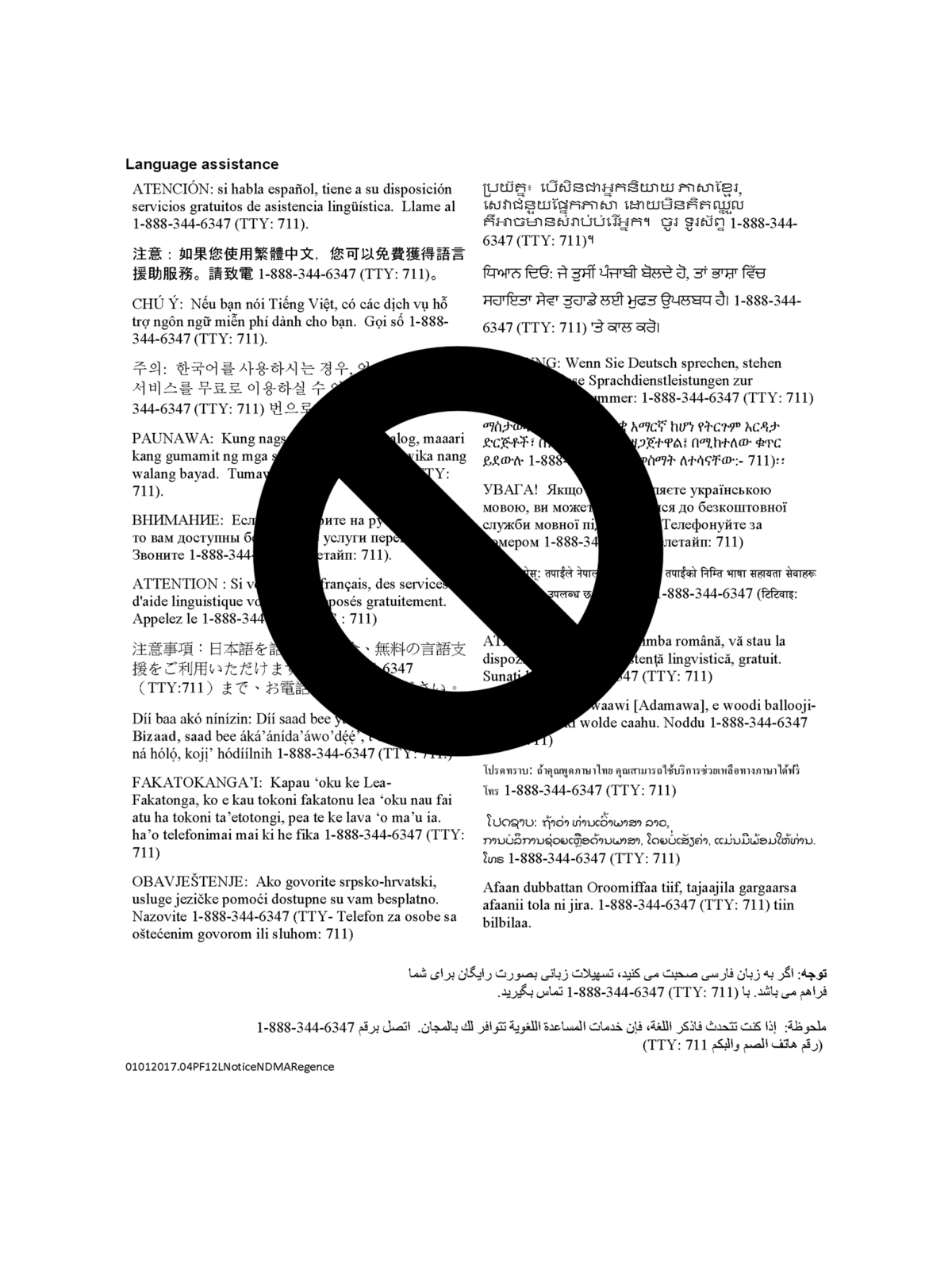Hot Topics BlogWednesday, June 17 2020
Final Rule Removes Gender Identity, Termination of Pregnancy, and Notice and Tagline Provisions On June 12, 2020, the U.S. Department of Health and Human Services (HHS) issued a final rule that revises the implementation of the Affordable Care Act’s Section 1557 nondiscrimination provisions on gender identity and language access. Specifically, the final rule:
The final rule is scheduled to be published in the Federal Register on June 19, 2020, and will become effective 60 days after publishing. The final rule does not affect the substantive Section 1557 provisions related to nondiscrimination on the basis of disability, race, color, age, national origin or sex. Thursday, March 26 2020
Employer Notice, Fact Sheets, Q&As Available on DOL Webpage Questions and Answers Posters Field Assistance Bulletin Saturday, February 01 2020
Starting Jan. 1, 2020, Washington state law protects you from surprise or balance billing if you receive emergency care at any medical facility or when you're treated at an in-network hospital or outpatient surgical facility by an out-of-network provider. What is surprise or balance billing? The new Balance Billing Protection Act prevents people from getting a surprise medical bill when they receive emergency care from any hospital or if they have a scheduled procedure an in-network facility and receive care from an out-of-network provider. In this case, if an insurer and provider cannot agree on a price for the covered services, they go to arbitration and cannot bill the consumer for the amount in dispute. What to do if you get a surprise bill The law applies to most, but not all health plans How much do you pay? What health insurers must do What medical providers and facilities must do Wednesday, December 18 2019
New Form W-4 for 2020 Just Released
Employees complete the Form W-4 so that their employers can withhold the correct amount of federal tax from their paycheck. A significant change for the 2020 form is that it does not have withholding allowances because employees may no longer claim personal exemptions or dependency exemptions. Previously, the value of a withholding allowance was tied to the amount of the personal exemption. The new form is divided into five steps and employees will provide information for the steps that apply to them (steps 2-4 may not). Step 1: Enter personal information (including marital status). Publication 15-T (still in draft form) assists employers in determining the amount of federal income tax to withhold from their employees’ wages. Continue to read about the Form W-4, and see the 2020 version.
Saturday, July 27 2019
Lately, you may have heard about surprise medical billing in the local and national news. I'm thrilled both Washington D.C. and Washington state are finally giving this issue the attention it deserves, because it is one of the most costly and troublesome issues I see for health insurance consumers. For most of us, the only 'surprise' we want on our medical bill, is to hear either we don't owe anything after all or insurance decided to cover it. But the reality is, surprise or 'balance' billing can happen when you're treated for an emergency, or have a scheduled procedure at an in-network hospital or surgery facility and are seen by an out-of-network provider. A common concern we get at PNW Insurance Solutions, located in Mukilteo, WA is something along the lines of "I went to an in-network hospital, so why do I owe this HUGE amount still?" Well, this happens because some types of providers, including anesthesiologists, radiologists, pathologists, and labs may not be contracted with your insurance company even though they provide services at a hospital or facility that is in your health plan’s provider network. So, in addition to your expected out-of-pocket costs, you also get a bill for the difference between what your insurer has agreed to pay that provider and the amount the provider billed for their services. This is commonly referred to as 'balance billing'. So, what is Washington state doing about this? Quite a bit actually. Beginning January 1, 2020, The new surprise billing law (www.leg.wa.gov) prevents people from getting a surprise medical bill when they receive emergency care from a hospital or get care at an in-network facility but are treated by an out-of-network provider. If an insurer and provider cannot agree on a price for the covered services, they can go to binding arbitration but they cannot bill the consumer for the amount in dispute. How great is that?!? This new law will provide transparency. Insurers, medical providers and facilities must give consumers a new notice detailing their rights and letting them know when they can and cannot be balance billed. Also, they must keep updated information about provider networks on their websites. At last, some long needed help! This new law will provide dispute resolution. The amount an out-of-network provider will be paid by an insurer must be a 'commercially reasonable' amount, based on payments for the same or similar service in a similar geographic area. If an insurer and provider cannot reach an agreement, either one can request arbitration. Neither one can involve the consumer in the dispute. More protection for us! There will be a new sheriff in town. If the commissioner's office sees that a provider is continuing to surprise bill consumers, it can refer the provider to the Department of Health for disciplinary action. Bam! So what should you do before the law is enacted if this happens? If you get a surprise medical bill before the new law takes effect, you should contact the provider directly. Tell them you know the law is changing soon and ask them to reconsider the charges or request a reduced charge. Unfortunately, surprise billing could still occur in this time, but knowing your options could help you reduce your costs. Stand up for yourself! If you have any questions, please contact Wendee Allen at PNW Insurance Solutions 425-314-0988. Thursday, June 13 2019
As the weather heats up, the insurance carrier activity here in Washington state is heating up too. The 2020 individual and small group requested rate increases were recently released. There are decreases, increases, carriers exiting the state or certain counties, a few new players and more! Individual & Family Health Insurance There are two new insurance companies entering the Washington market and many changes to county coverage with existing carriers. Of note:
Small Group Health Insurance The requested small group rate increases for 2020 are in for several noteworty carriers:
The requested changes from each insurance company have not been approved yet by Washington's Insurance Commissioner. We did see changes happen last year and will provide updates as they become available. If you have any questions please contact Wendee Allen at (425) 314-0988. Have a great summer! Wednesday, June 12 2019
The IRS recently announced the dollar limits for the 2020 calendar year applicable to group plans and high deductible health plans (HDHPs)/health savings accounts (HSAs) . 2020 maximum out-of-pocket limits for group plans The out-of-pocket maximum includes copayments, deductibles and coinsurance amounts, and excludes premiums. 2020 limits for HDHPs/HSAs Out-of-pocket maximum 2020 HSA contribution limits 2020 Contact your PNW Insurance Solutions representative for more information by calling (425) 314-0988. Tuesday, February 05 2019
Is your Company's HSA Plan Compliant for 2019? You can easily make sure by reviewing these 2019 HSA Compliance Tips //j.b5z.net/i/u/10244843/f/Key_HSA_Features___2019_Compliance.pdf. If you have questions, please contact Wendee Allen at PNW Insurance Solutions by calling (425) 314-0988. Tuesday, December 25 2018
New Limit Amount Next Steps Wednesday, October 31 2018
A new proposed rule would permit all employers to offer health reimbursement arrangements (HRAs) to reimburse employees' individual health insurance policy premiums if certain conditions are met. Currently, many employers are prohibited from offering such HRAs. If finalized, the proposal would be effective for plan years beginning on or after January 1, 2020. In general, the proposal would permit HRAs to reimburse premiums for individual health insurance policies only if:
Click here for more information on the proposal and contact Wendee Allen of PNW Insurance Solutions at (425) 314-0988 with questions. |
Terms & Conditions | Copyright | Privacy Policy
© PNW Insurance Solutions, LLC.






